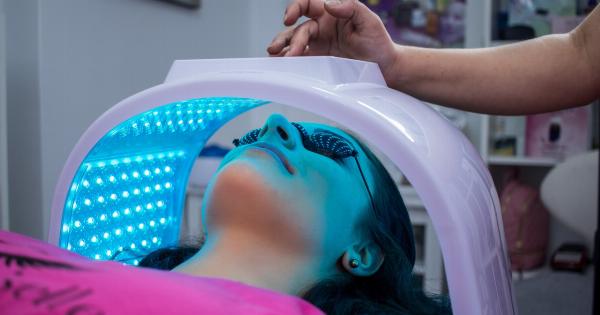Menopause is a natural transition in a woman’s life when her menstrual periods stop permanently. Along with hormonal changes, menopause can also bring about various physical changes, including changes to the skin.
As estrogen levels decline, the skin becomes dryer, thinner, and more susceptible to various skin concerns. However, with a few changes to your skincare routine and lifestyle habits, you can effectively keep your skin healthy and glowing during menopause.
1. Hydrate Your Skin
One of the most important steps in maintaining healthy skin is hydration. As estrogen levels drop, the skin loses its natural moisture, leading to dryness and dullness.
To combat this, drink plenty of water throughout the day to hydrate your body from within. Additionally, choose skincare products that contain moisturizing ingredients like hyaluronic acid and glycerin to provide external hydration to your skin.
2. Cleanse Gently
During menopause, the skin becomes more delicate and sensitive. Therefore, it is essential to choose a gentle cleanser that won’t strip your skin of its natural oils.
Look for sulfate-free, non-foaming cleansers that are specifically formulated for dry or mature skin. Avoid hot water for cleansing as it can further dehydrate the skin. Instead, use lukewarm water to maintain the skin’s natural moisture.
3. Exfoliate Regularly
Exfoliating helps to remove dead skin cells, revealing smoother and brighter skin underneath. However, be cautious when exfoliating during menopause as the skin may be more sensitive. Opt for mild exfoliators that are suitable for sensitive skin.
Physical exfoliants like gentle scrubs or chemical exfoliants with AHAs (alpha hydroxy acids) or BHAs (beta hydroxy acids) can effectively exfoliate the skin without causing irritation.
4. Moisturize Adequately
As the skin becomes drier during menopause, it is crucial to moisturize it adequately. Use a moisturizer that is rich in hydrating ingredients like ceramides, shea butter, or natural oils.
Applying moisturizer immediately after cleansing or showering helps lock in the moisture effectively. Consider using a separate moisturizer for your face and body, as the skin on these areas may have different needs.
5. Protect from the Sun
Protecting your skin from the harmful UV rays of the sun is crucial to maintain its health and prevent premature aging. Menopausal skin may be more susceptible to sun damage, so it’s important to wear sunscreen with at least SPF 30 every day.
Look for broad-spectrum sunscreens that offer protection against both UVA and UVB rays. Apply sunscreen generously on all exposed areas of the skin and reapply every two hours or after swimming or sweating.
6. Include Antioxidants in Your Skincare
Antioxidants help protect the skin from free radicals, which can contribute to skin aging and damage. Look for skincare products that contain antioxidants like vitamin C, vitamin E, green tea extract, or resveratrol.
These antioxidants can help brighten the skin, reduce inflammation, and boost collagen production, leading to healthier and more youthful-looking skin.
7. Use Retinoids for Skin Renewal
Retinoids, derived from vitamin A, are powerful skincare ingredients that promote skin cell turnover and stimulate collagen production. Regular use of retinoids can help reduce the appearance of fine lines, wrinkles, and age spots.
However, menopausal skin may be more sensitive, so start with a low concentration retinol product and gradually increase the usage frequency. Always follow the instructions provided with the product and consult a dermatologist if needed.
8. Eat a Healthy Diet
What you nourish your body with reflects on your skin. Include a balanced and nutritious diet to support your skin health during menopause.
Eat foods rich in antioxidants, such as berries, leafy greens, and colorful vegetables, to provide your skin with vital nutrients. Omega-3 fatty acids found in fatty fish, walnuts, and chia seeds can help improve skin elasticity and hydration. Additionally, drink green tea, which is rich in antioxidants and may have anti-aging benefits for the skin.
9. Exercise Regularly
Regular exercise not only benefits your overall health but also your skin. It improves blood circulation, delivering vital nutrients and oxygen to the skin cells.
Exercises like brisk walking, jogging, cycling, or yoga can help maintain healthy skin during menopause. Make sure to cleanse your skin after exercising to remove sweat and buildup that can clog pores.
10. Manage Stress
Menopause can often be accompanied by increased stress levels due to hormonal fluctuations. Chronic stress can negatively impact the skin, leading to breakouts, dullness, and signs of aging.
Practice stress management techniques like meditation, deep breathing exercises, or engaging in hobbies you enjoy. Getting enough sleep is also vital for proper skin rejuvenation.






























